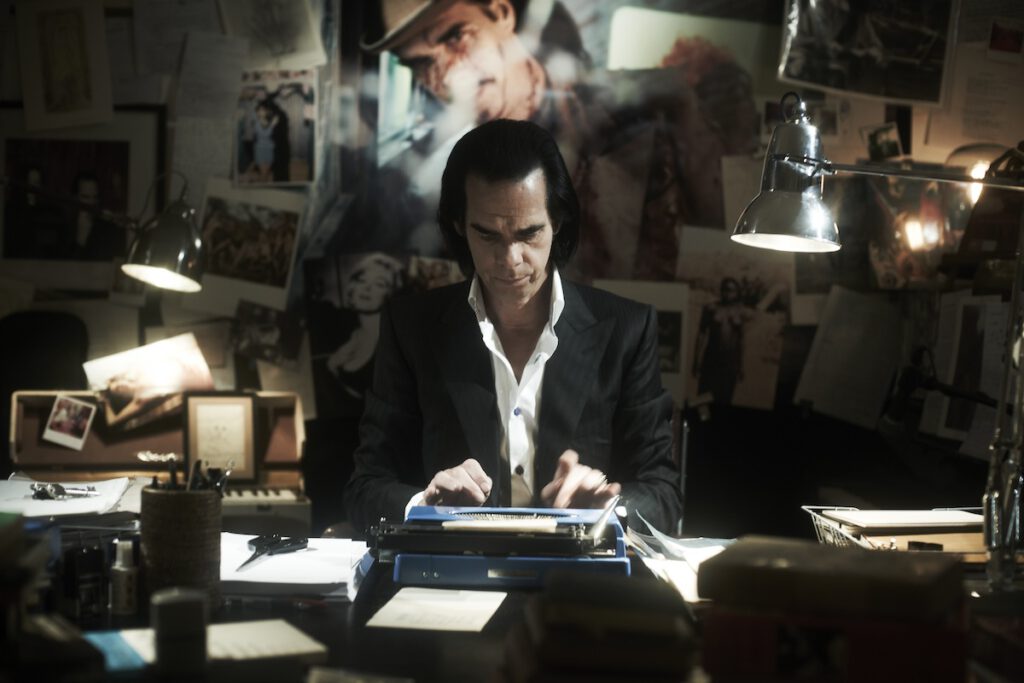The last day of screenings and interviews have been intense. I haven’t slept well, which has only added to the surreality of everything that’s happened today. I’d been hyperventilating for weeks at the thought of interviewing Australian rocker Nick Cave, but somehow, our talk went as well as I could have hoped (look for it at Esquire). Cave is in Park City today to promote “20,000 Days on Earth,” an exceptional nonfiction film that mythologizes and explains where his head and work are at right now. The film is not a for-fans-only project, though it clearly wasn’t made for a mass audience.
How to describe “20,000 Days on Earth”? It’s not really a documentary, but it does have documentary elements. During Q&A following yesterday’s premiere, directors Iain Forsyth and Jane Pollard said that their key cinematic influences were the Led Zeppelin doc “The Song Remains the Same”, Lindsay Anderson’s “O Lucky Man!”, and Jean-Luc Godard’s “Sympathy for the Devil.” One can picture it doing equally well with an arthouse audience or a midnight movie mob.
Forsyth and Pollard chart a day in the life of Cave’s song-writing persona. He narrates the film in an imperious, knowingly stilted way. Over the course of this imaginary day, Cave talks to a Freudian analyst (though he isn’t interested in psychoanalysis), interviews Kylie Minogue and former bandmate Blixa Bargeld, and records tracks from “Push the Sky Away,” the latest album by Cave’s band the Bad Seeds. Cave, a notoriously guarded interview subject, is candid throughout this unusual, semi-improvised series of encounters. Which isn’t to say that he completely lets his guard down. If anything, “20,000 Days on Earth” is about Cave’s need to distance himself from reality, to create a personality that, through his songs and his performances, transports him to a superhuman state.
Because “20,000 Days on Earth” is essentially a presentation of Cave as he wants to be seen, and how he sees himself, it’s not an easy film to describe. But there are a lot of great insights into Cave’s music, and Pollard and Forsyth know just how to film their subject. You believe Cave when he says he becomes superhuman when he takes the stage because you can see that transformation occur, as when Cave performs “Jubilee Street”, a barn-burner off “Push the Sky Away”. It’s gratifying to see a film as ambitious and out there as “20,000 Days on Earth” pin down a subject as elusive as Cave. Don’t miss it.












